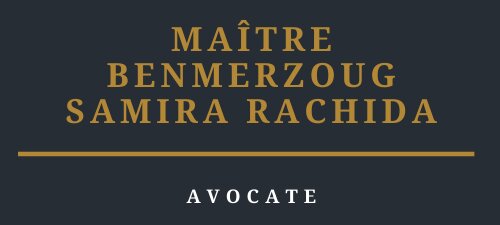Best Criminal Litigation Lawyers in France
Share your needs with us, get contacted by law firms.
Free. Takes 2 min.
Or refine your search by selecting a city:
List of the best lawyers in France
France Criminal Litigation Legal Questions answered by Lawyers
Browse our 1 legal question about Criminal Litigation in France and read the lawyer answers, or ask your own questions for free.
- Criminal law
- After relocating to France, I have discovered that my daughter was a victim of someone who is serving 15 years. A few years ago, she tried to lodge a complaint in France and Belgium to no avail. The South African Embassy wasn't of help either. I would like to file... Read more →
-
Lawyer answer by Tekin Law Firm
You should file a petition or complaint with the French Chief Public Prosecutor's Office.
Read full answer
About Criminal Litigation Law in France
Criminal litigation in France involves the prosecution and defense of individuals charged with criminal offenses. The French legal system is based on civil law, which is codified, meaning laws are written into comprehensive codes. Criminal cases are handled separately from civil matters, and the process involves an investigation phase, a trial, and potentially appeals. The French “Code de procédure pénale” outlines procedures for handling criminal cases, aiming to balance the rights of the accused against the interests of the public and victims.
Why You May Need a Lawyer
Individuals may require legal help in criminal litigation for various reasons, including if they are accused of committing a crime, are victims seeking justice, or witnesses needing representation. Legal professionals help navigate complex legal procedures, defend rights, and aim for fair outcomes in cases like theft, assault, drug offenses, or white-collar crimes. Lawyers provide advice on options, build defenses, or assist in plea negotiations, ensuring due process is followed throughout the legal system.
Local Laws Overview
In France, criminal law is primarily governed by the Penal Code and the Code of Criminal Procedure. Key aspects include:
- Presumption of Innocence: Individuals are presumed innocent until proven guilty.
- Investigation Phase: Led by investigating judges or prosecutors, this phase includes gathering evidence and questioning witnesses.
- Trial Process: Trials are either conducted by magistrate courts for minor offenses or by criminal courts for serious crimes. Some cases may involve juries.
- Sentencing and Penalties: Penalties can range from fines and community service to imprisonment, depending on the crime's severity.
- Rights to Appeal: Convicts can appeal decisions in higher courts, like the Court of Appeal or the Court of Cassation.
Frequently Asked Questions
What is the role of the investigating judge in the French criminal system?
The investigating judge oversees the pre-trial phase in serious criminal cases, ensuring evidence collection complies with legal standards, and may issue warrants or indictments.
How long can someone be held in police custody in France?
Police custody, or "garde à vue," typically lasts 24 to 48 hours but can be extended for up to 96 hours in terrorism or organized crime cases.
Can a defense lawyer be present during police interrogations?
Yes, individuals in police custody have the right to legal assistance and can request the presence of a lawyer during interrogations.
What happens if a suspect cannot afford a lawyer?
If a suspect cannot afford a lawyer, the state provides legal assistance through court-appointed attorneys, especially in serious criminal matters.
What is the difference between a "contravention," "délit," and "crime" in France?
A "contravention" refers to minor offenses, a "délit" to medium-level crimes, and a "crime" to serious offenses with harsher penalties like life imprisonment.
How is evidence presented in French courts?
Evidence is presented openly in court and judged on its merits. Both prosecution and defense can challenge evidence and call witnesses.
What are the consequences of being convicted of a crime in France?
Consequences vary widely, including fines, imprisonment, probation, or additional measures like driving bans or rehabilitation programs.
How does one appeal a criminal conviction in France?
Convictions can be appealed to a higher court, where a new set of judges reviews the case's merits, leading to possible confirmation, modification, or reversal of the decision.
Are there any alternatives to imprisonment in France?
Yes, alternatives include suspended sentences, electronic monitoring, community service, and fines, depending on the case's severity and the defendant's background.
What is the role of a jury in criminal trials?
Juries are involved in Assize Courts handling serious crimes, where laypersons collaborate with professional judges to decide on the defendant's guilt and sentencing.
Additional Resources
For more information or assistance, the following resources can be helpful:
- Ministry of Justice: Provides detailed legal information and guidance.
- Legal Aid Bureau (Bureau d'Aide Juridique): Offers services for those entitled to legal aid.
- Bar Associations (Ordres des Avocats): Regional organizations that can help find qualified criminal lawyers.
- Non-Governmental Organizations: Groups like the International Federation for Human Rights (FIDH) offer assistance in specific cases of legal injustice.
Next Steps
If you need legal assistance in criminal litigation, consider the following steps:
- Consult a criminal lawyer to understand your rights and options.
- Prepare and gather relevant documents and evidence related to your case.
- Consider requesting a state-appointed lawyer if you cannot afford private legal services.
- Stay informed about your legal proceedings and actively participate in your defense strategy.
- Seek support from legal aid organizations or community groups if needed.
Taking these steps can help ensure that you are well-prepared and represented throughout your legal journey in French criminal litigation.
Lawzana helps you find the best lawyers and law firms in France through a curated and pre-screened list of qualified legal professionals. Our platform offers rankings and detailed profiles of attorneys and law firms, allowing you to compare based on practice areas, including Criminal Litigation, experience, and client feedback.
Each profile includes a description of the firm's areas of practice, client reviews, team members and partners, year of establishment, spoken languages, office locations, contact information, social media presence, and any published articles or resources. Most firms on our platform speak English and are experienced in both local and international legal matters.
Get a quote from top-rated law firms in France — quickly, securely, and without unnecessary hassle.
Disclaimer:
The information provided on this page is for general informational purposes only and does not constitute legal advice. While we strive to ensure the accuracy and relevance of the content, legal information may change over time, and interpretations of the law can vary. You should always consult with a qualified legal professional for advice specific to your situation.
We disclaim all liability for actions taken or not taken based on the content of this page. If you believe any information is incorrect or outdated, please contact us, and we will review and update it where appropriate.
Browse criminal litigation law firms by city in France
Refine your search by selecting a city.














